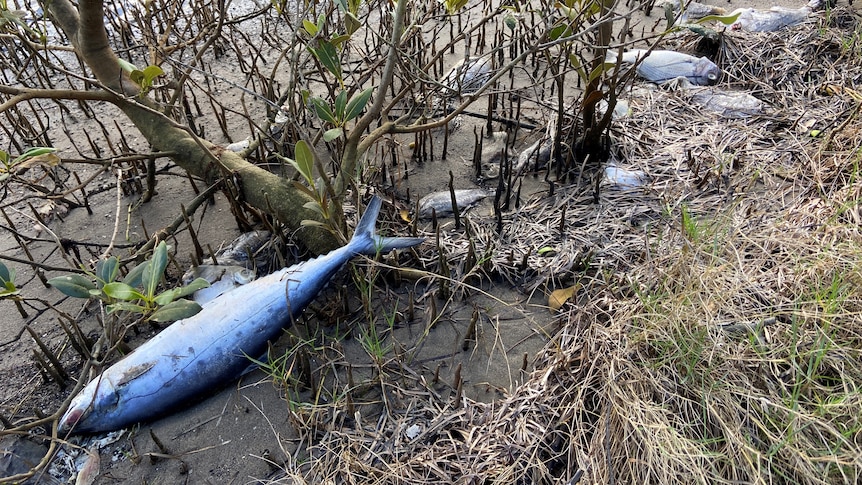Authorities are investigating what caused hundreds of fish to wash up dead on the banks of Lake Macquarie in New South Wales last week.
Key points:
- The Environmental Protection Authority is analyzing water samples from Lake Macquarie
- Officers find fish with “greying gills”, which suggests a lack of oxygen
- Residents believe the dead fish number in their thousands and include eagle rays
Lake Macquarie is a saltwater estuary that covers about 110 square kilometers on the state’s Central Coast.
Gary Graham has been living in Mannering Park for nearly 70 years and said he had “never seen a fish kill of this magnitude.”
“We’ve had a few fish kills previously… but this is an enormous fish kill,” he said.
Resident of 56 years Shane Peters felt the same.
“It’s very smelly. We’ve never seen anything like this,” he said.
Both men believed the event could have killed most of the fish in the lake.
‘Greying around the gills’
The Environmental Protection Authority (EPA) said it collected water samples for laboratory analysis after they were alerted to the incident at Mannering Park on Friday afternoon.
“Since initial inspections, the EPA has observed hundreds of dead fish of various species and sizes,” a spokesperson said.
“Field officers also noted graying around the gills, which could suggest oxygen depletion.
“A decrease in oxygen content in water is a natural event that can cause rapid fish deaths.”
Residents embark on clean-up
Mr Graham estimated the number of fish that had washed up dead on the foreshore outside his home was in the order of thousands, not hundreds.
Prompted by the smell of rotting fish over the weekend, he said he and his neighbors filled an entire council wheelie bin with fish carcasses found out the front of four waterfront properties.
He said these included juveniles, large flatheads and even a mature eagle ray.
“We’re probably looking at 100-plus kilograms of fish,” Mr Graham said.
“And I must say it was distressing picking up all sorts of fish. There was no discrimination.”
The EPA has instructed the local council to remove and dispose of the dead fish.
.
